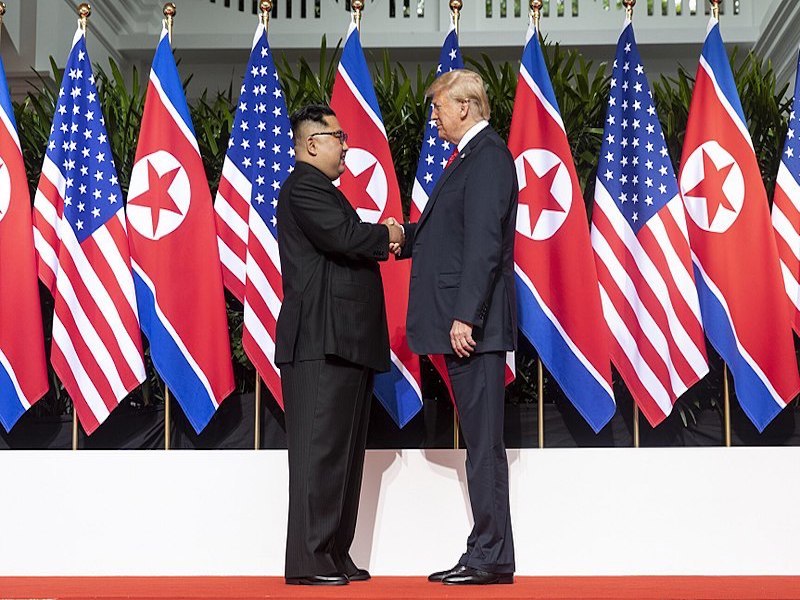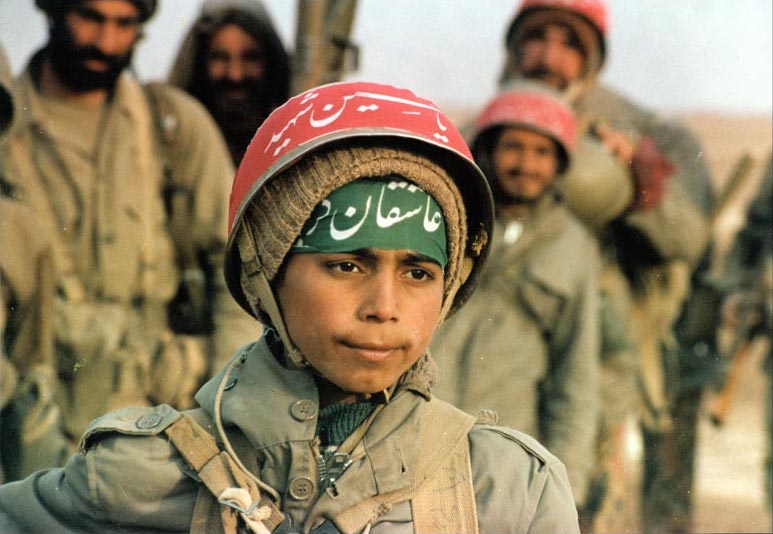It has been over two weeks since the Singapore summit ended. Overall, the assessment of the Singapore Summit is negative. In particular, the US media and experts who disbelieve North Korea suggest that it amounted to North Korea’s victory and America’s defeat. But is it true that the Singapore talks were really a failed meeting?
The criticism stems from the fact that the United States failed to achieve the inclusion of the phrase “complete, verifiable, irreversible denuclearization (CVID)” in the joint statement, which also lacked the specificity of a formal agreement. The United States, of course, can be seen as having failed in the Singapore talks in that it failed to achieve its goal of CVID. However, what we have concluded is that we have overlooked the historical relationship between the United States and North Korea.
First, the US and North Korea have been in a mutually hostile relationship for more than half a century. How can specific agreements be reached at the first meeting between hostile nations? Mutual trust is essential for concrete agreement, but the United States and North Korea threatened to attack one another only half a year ago. It is impossible for them to make a concrete agreement when such a relationship exists.
Second, we need to focus on the meaning of CVID. CVID has a very important meaning as a principle of denuclearization regarding North Korea, which has never been accepted in the past. Given that negotiations are a process of give and take, a corresponding price is required to allow North Korea to accept CVID. In return, North Korea asked the US for regime security guarantees. In other words, the North Korean regime security guarantees must also be included in order to enter CVID into the Joint Statement. The question remains as to whether the United States is ready to accept it.
Third, it is generally common to make comprehensive agreements at a summit, and to make detailed and concrete agreements at follow-up talks. The summit with North Korea is no different. There cannot be a concrete consensus after the first meeting under a hostile relationship. The agreement on the first summit between the two Koreas in 2000, the June 15 Joint Declaration was also a comprehensive agreement of five terms (White Paper on Korean Unification 2001).
Considering that this is the first meeting between the US and North Korea, which is a hostile relationship built on mutual distrust, and even though it failed to stipulate the CVID, it is possible to evaluate that there was a meaningful achievement in the denuclearization of North Korea, and the creation of a new US-North Korea relationship.
If so, can the Singapore conference, which has achieved such a modest level of success, be able to achieve concrete results concerning North Korea’s denuclearization?
Subsequent negotiations will be much more difficult than the Singapore Summit because there are many difficulties in the North Korean nuclear negotiations. As an example, we can refer to the joint statement of the six-party talks in 2005 that had been abandoned, as it was unable to overcome difficulties in the implementation process. Specifically, the US and North Korea did not reach a consensus on the verification protocol.
Therefore, in future negotiations on the North Korean nuclear issue, narrowing the gap between the two sides on specific issues such as denuclearization procedures(reporting, verification and disarmament) and timelines, methods of securing the North Korean regime, and procedures and methods for normalizing US-North Korea relations is imperative.
However, if we look closely at the Singapore Summit, we can expect both sides to be able to overcome this crisis.
First, the Singapore agreement is more binding and more likely to be implemented than any other US-North Korea agreement. Until now, there has been no case where either of the participants at a summit signed a document on direct denuclearization and normalization of bilateral relations. In particular, since the talks are promises made to the entire world, both of them will face intense international criticism if they do not follow through with their promises. In addition, both leaders are aiming to achieve concrete results in the wake of the talks. President Trump has a desire to make North Korea’s denuclearization a political achievement ahead of the upcoming mid-term elections in November, and since Kim Jong-un is promoting this Summit to North Koreans as his diplomatic achievement, he should take measures to improve the quality of life of North Koreans as a concrete achievement.
Second, it is Kim Jong Un’s attitude toward denuclearization that is promising. He first implemented important denuclearization measures before the talks without any prior consideration from the United States, and verified the follow-up measures verbally. In other words, he destroyed the nuclear test tunnels at Punggye-ri and promised to shut down the ballistic missile engine test site. It is difficult to find cases in which measures are taken to benefit the opponent without any compensation. Therefore, Kim Jong Un’s attitude toward denuclearization seems to have given credibility to the other party. However, according to recent reports from the North Korean research institutes, North Korea continues to enhance its nuclear programs. Therefore, it is necessary to stay vigilant.
Third, the US and North Korea, in these hostile relations, have a solid mediator who supports negotiations. President of the Republic of Korea, Moon Jae In, played a very important role in the process of the Singapore Summit. He delivered Kim Jong Un’s position to Trump regarding the US-North Korea summit, and after the original announcement of Trump’s cancellation of the summit, he confirmed Kim Jung Un’s intention through the inter-Korean summit.
Historically, the mediator’s role in coordinating conflicts between hostile countries is very important, and Moon Jae-In, who is trusted by Trump and Kim Jong-Un, is uniquely qualified to play that role.
In addition, the atmosphere of reconciliation among the three countries has been hard to find in the past. In the past, a vicious cycle in which other bilateral relations deteriorated when one of the bilateral relations improved was repeated. For example, the relationship between South Korean President Roh Moo-Hyun and US President Bush was not good in the past, but North Korean leader Kim Jong-Il and President Roh Moo-Hyun maintained good relations. On the other hand, President Lee Myung-Bak, the successor of President Roh Moo-Hyun, maintained a very close relationship with President Bush, while the relationship between North and South Korea was at its worst. Because the US-North Korean relations and inter-Korean relations are closely related, these positive relations between the three parties will help to advance the US-North Korea negotiations.
The upcoming US-North Korea talks will present a series of difficulties. However, they can overcome these difficulties based on the good performance that has been made in Singapore. Moreover, US-North Korea talks will be able to proceed smoothly if Trump reduces the confusion and distrust of public opinion by refraining from spontaneous tweets and media interviews.
Photo: Kim and Trump shaking hands at the red carpet during the DPRK – USA Singapore summit (2018), by Shealah Craighead via Wikimedia Commons.
Disclaimer: Any views or opinions expressed in articles are solely those of the authors
and do not necessarily represent the views of the NATO Association of Canada.




